A Cousin, Tribal Groups, Buddhists Gather For The Pope In Thailand
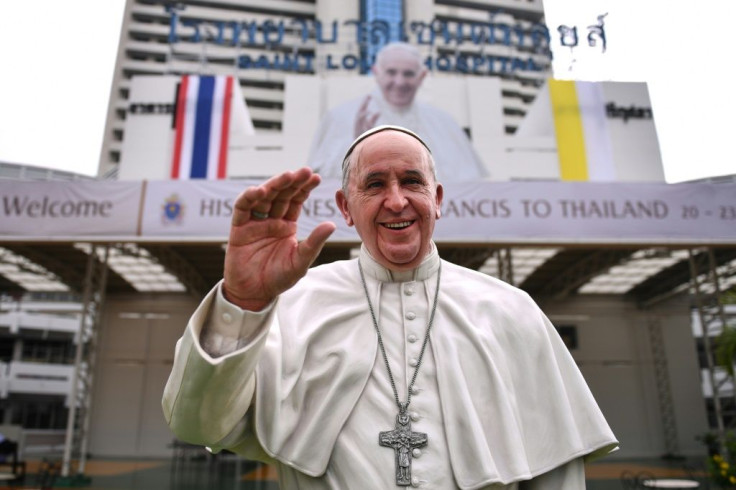
Pope's Francis's missionary cousin, tribal minority people from remote mountain villages and Buddhist children will be among the tens of thousands of people who descend on the Thai capital to catch a glimpse of the pontiff this week.
Here are profiles on some of the interesting figures who will be in Bangkok for the pope's four-day visit starting on Wednesday.
Sister Ana Rosa shares a great grandfather with the pope and will be at his side to act as an interpreter, attending the two masses he will lead at the Assumption Cathedral and at a stadium in Bangkok.
"I still call him 'Jorge'," she tells AFP, referring to the pontiff's birth name, Jorge Mario Bergoglio.
The 77-year-old sister has worked as a missionary in Thailand since 1966 and today runs a Catholic girls' school, making her the perfect guide to avoid any faux pas in the Buddhist-majority country.
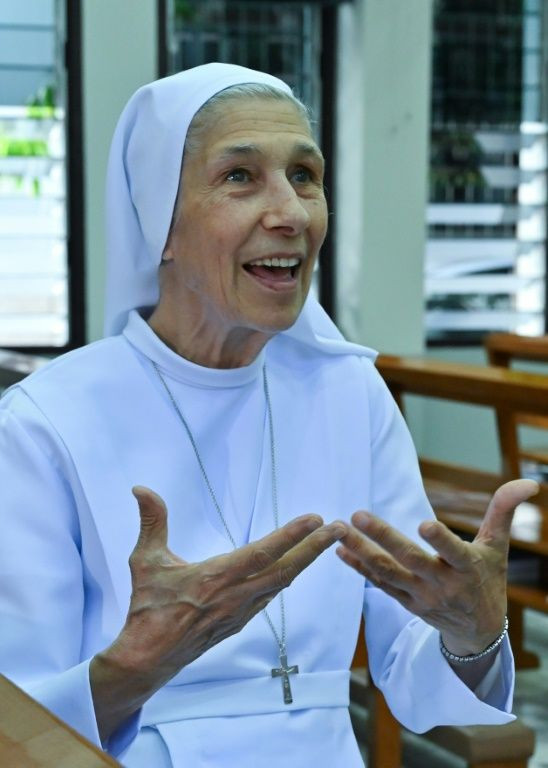
She says there is no room for pride as she rises to the important role, adding she also managed to keep her feelings in check when he was appointed pope -- even if she admits staying awake "most of the night".
She remembers her now-famous cousin as a quiet child who loved football and was even "a bit boring" at times.
"Today he is a great orator when he speaks to crowds," she says. "He likes to have direct contact with people."
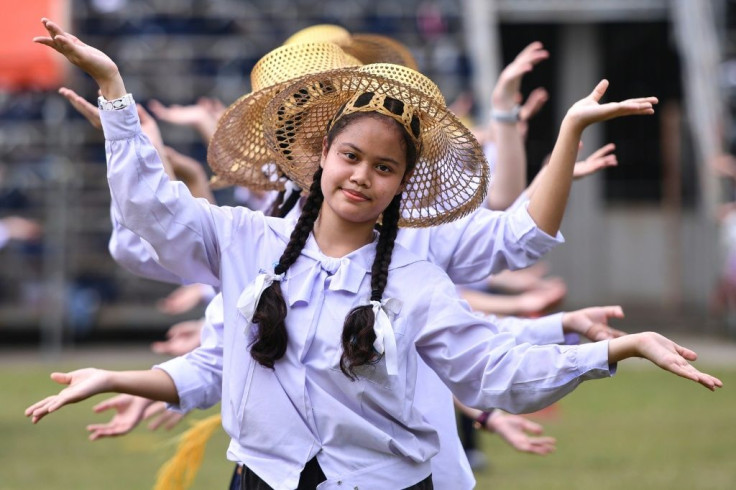
Father Alessio Crippa has been working to give children access to education and healthcare for the past three years in Khlong Toei, central Bangkok's largest slum and home to some 100,000 people.
But the 38-year-old former engineer-turned-missionary says he is "not a hero".
He helped select five children -- two Catholics and three Buddhists, aged 10 to 14 -- to have a face-to-face meeting with Pope Francis.
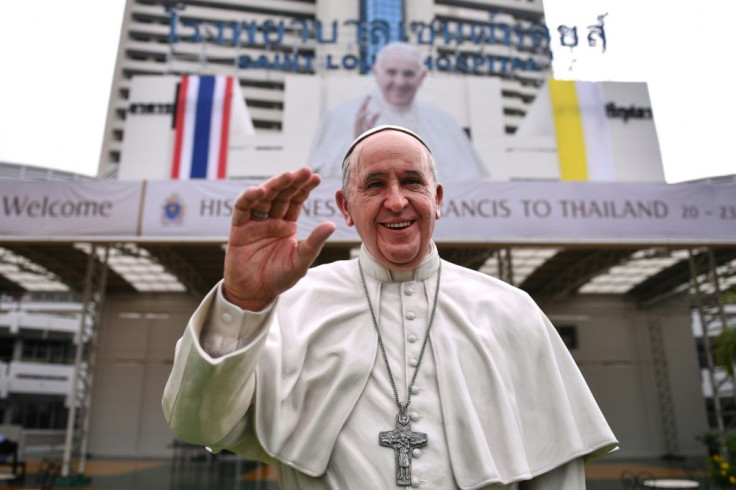
"This is a sign of recognition for these young people who were recently out of the school system," he says.
"They were born in families devastated by drugs, debt or disease."
While the majority of Khlong Toei's inhabitants are Buddhist, Father Alessio says he's not here to convert, rather "to help".
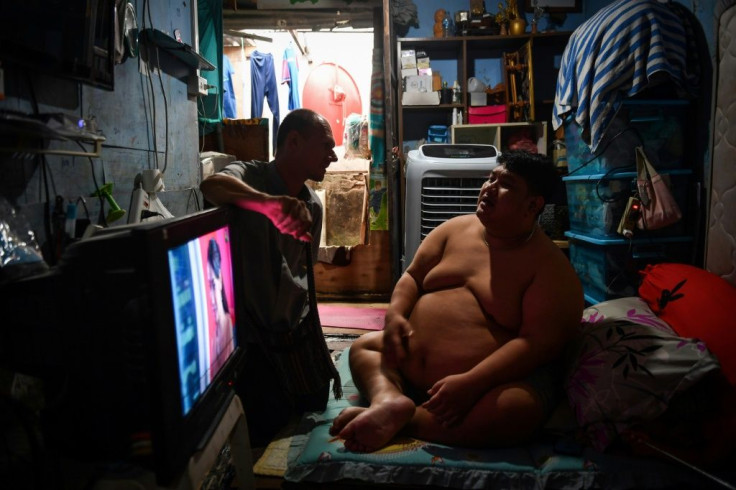
For many of the 400 ethnic Karen Christians travelling by bus from Tak province on the Myanmar border, this will be the first time they see Thailand's capital.
The remote communities lack internet and television and many have only ever seen the pontiff in photos brought by missionaries, Sister Paif tells AFP.
"They don't know what to expect," the ethnic Karen says. "They are worried about leaving their paddy fields at harvest time, but they will be proud to recount" their adventures.
The 26-year-old sister travels by foot to visit
those in need in isolated villages, where many lack medical help and access to advanced education.
They are still considered "second-class citizens" in Thailand, she says, even after living for decades on the country's borders having escaped persecution in Myanmar.
There are also tens of thousands of Karen -- alongside other ethnic groups that fled Myanmar -- living in refugee camps on the border.
The pope travelled to Myanmar in 2017 before visiting Bangladesh where he met Rohingya Muslims who fled a military crackdown in Myanmar's western Rakhine state.
No such visit is planned for Myanmar's Karen refugees in Thailand.
As a Catholic, 15-year-old Nara has long had questions about her place in Buddhist-majority Thailand, but finds herself lucky that her peers are "tolerant" of her beliefs.
"I speak a lot with my Buddhist friends about my faith," she says as she rehearses a traditional northern Thai dance using colourful umbrellas.
Nara is among 800 girls -- both Buddhist and Catholic -- selected to perform for the pontiff during his stadium mass which is expected to draw tens of thousands of pilgrims.
"It is an honour for me to dance at the mass," Nara says. "He is coming here to show he is open to other religions."
In a video message Friday, Pope Francis said he hopes for his visit to "strengthen the bonds of friendship that we share with many Buddhist brothers and sisters".
© Copyright AFP 2024. All rights reserved.







